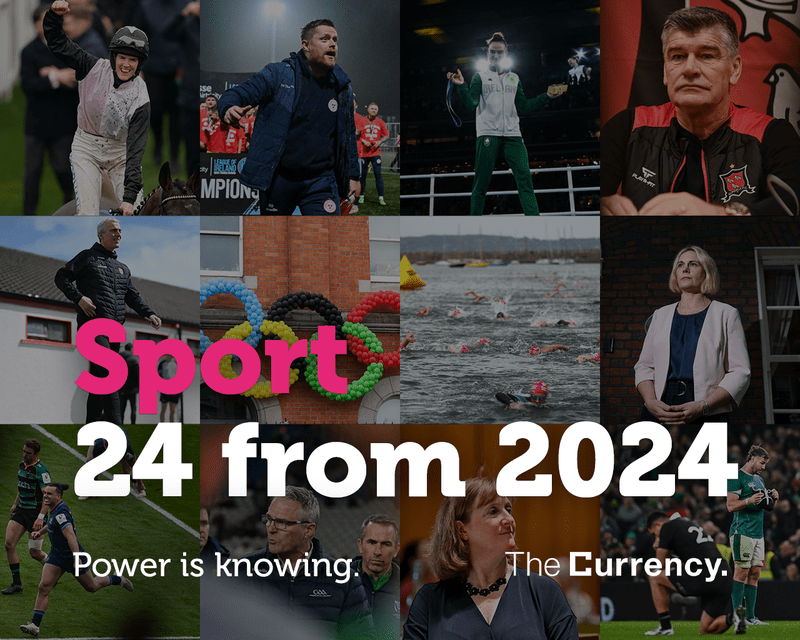At its core, The Currency is a business publication. That is our main focus, and we make no apologies for that.
But we also look to other areas, particularly at weekends when we delve more into politics, current affairs, and of course, sports.
Over the last number of years, we have retained a number of sports writers – Brett Igoe on rugby, Dion Fanning on football and Paul Flynn on Gaelic Games. They bring their own expertise to their columns: Paul was in the dressing rooms of one of the most successful GAA teams ever, Brett is one of the country’s top rugby analysts, and Dion has a wealth of understanding and experience in football. Johny Ward, meanwhile, writes extensively about domestic football and horseracing.
We also cover the governance and the finances of sports and, over the past 12 months, have interviewed many of the main decision-makers and leaders in sports and sports administration, from Sarah Keane to Una May.
It is an area we will continue to focus on, and we will approach it in our usual fact-based and evidence-driven way.
Here is a selection of our sports writing from the past 12 months.
“We have children on waiting lists. And those waiting lists are going to get a lot longer”
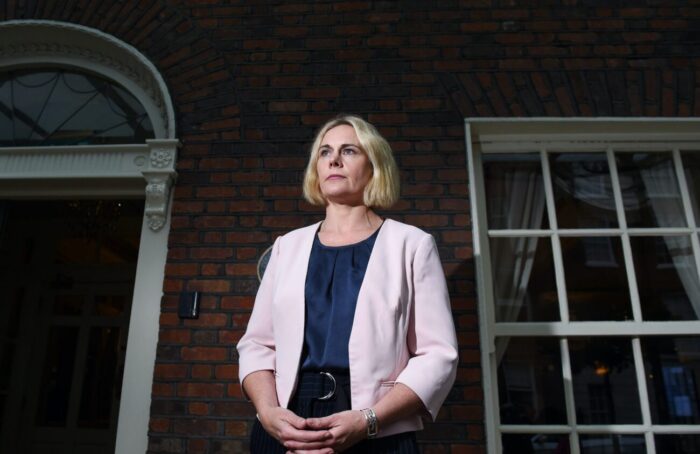
Sarah Keane knows all about rehabilitating sporting bodies. A corporate lawyer, she took over a bruised, fractured Swin Ireland in the wake of the George Gibney and Derry O’Rourke scandals and methodically rebuilt public trust by overhauling its governance and operating structures. She became president of the Olympic Federation of Ireland in 2017, amid the fallout from Rio 2016.
Her predecessor Pat Hickey had been arrested on alleged ticket touting charges in Brazil (Hickey denied all wrongdoing and many charges have subsequently been dropped), while relations with the Government were at an all-time low. Again, she worked on rebuilding trust in the organisation and restoring relationships with policymakers, national governing bodies, and the public. After two terms and eight years, she is now departing.
I caught up with Keane during the Paris Olympics, with Team Ireland midway through a historic performance.
Much of the conversation centred on her role with Swim Ireland, but she also spoke about her OFI job. On both counts, Keane was conscious to stress that the Paris success was just another step in the journey, as opposed to the endpoint. While the organisations had been reformed, she said a key transformation had been the actual attitude of the athletes.
“They are open about saying what they want to achieve. They are open about wanting to be role models. If they lose, people are disappointed for them, but not in them,” she told me. “If you listen to them, they want to create their own legacies. There is a maturity about them. That is a transformative piece.”
Brexit, Gen-Z and the Duff love: The inside story of how the League of Ireland was reborn
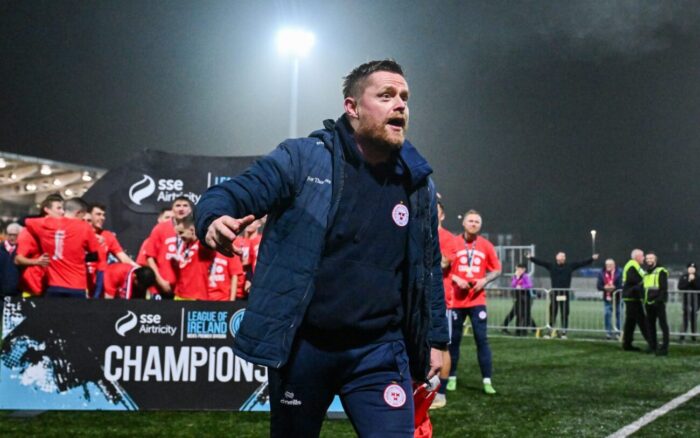
Once labelled the “difficult child” of Irish football, the League of Ireland is now attracting record crowds and huge interest. Drawing on numerous interviews with decision-makers, owners, and managers, Johnny Ward told the story of how domestic football was rehabilitated.
The FAI was never going to be straightforward post-Delaney and issues remain, but Ward argued that new CEO David Courell has been quietly impressive so far. ”If the League were once an enigma wrapped inside a cesspit, the FAI now understands, post-Brexit, how critical it is to the international team and even the economy,” he wrote.
While looking at structures and money, Ward also points to the importance of the Shelbourne manager Damien Duff for reviving interest in the league.
Ward wrote: ”The striking recollection I have of my first encounter with Duff, apart from how limited the FAI’s resources were – that giant of an interview back in 2021 – was that he was only there because he was obliged to give an interview for the launch of the new league season. One perceived, perhaps because of his chequered relationship with the governing body, a hint of belligerence. I would have offered any odds that he would become the most engaging and dynamic voice the league has ever had. He told The Currency on Thursday: ‘The league is the new heart and soul of Irish football.’”
“Rio was our ground zero”: Peter Sherrard on how the Olympic Federation of Ireland was rebuilt
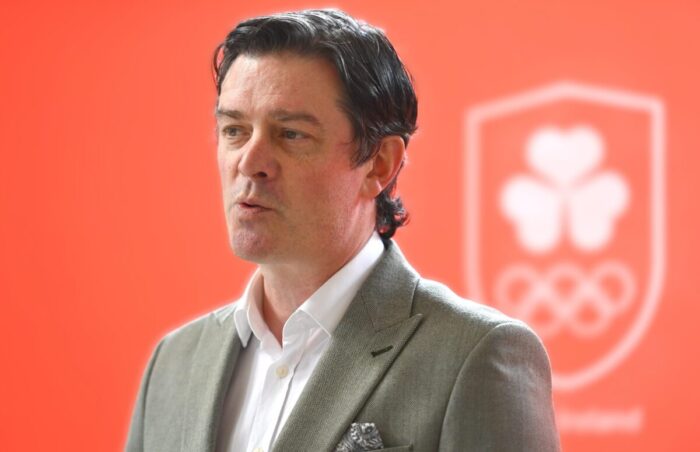
The Olympic movement celebrated its centenary in Ireland this year, a 100-year period that traverses wars, conflict and profound societal change. Yet, by any metric, 2016, when its president was arrested on ticket touting charges in Rio and relationships with athletes and government collapsed, represented a nadir for the Olympic movement in Ireland.
The legacy of that year remains in the OFI annual report, classified as a contingent liability. “As detailed in the 2016 to 2022 financial statements, the controversy surrounding the Olympic Games in Rio resulted in a significant cost to the organisation,” according to the audited report. “The full extent of costs relating to defending legal claims will only be known when these proceedings have been concluded. Likewise, the level of recovery of these costs against our insurance is also uncertain at this point.”
Yet, the organisation has been overhauled in the years since. During the Paris games, I spoke at length to the OFI chief executive Peter Sherrard, who explained to me how the organisation rebuilt relationships with the Government, sponsors, the public, and most of all, athletes.
“Rio was our ground zero,” he says.
In its aftermath, he says the job was to make the “organisation what it could, and should, have been”.
“There has been a big shift. There has been a lot of work done. But we are not finished yet.”
The financial fall of Dundalk FC: From the brink to the unbelievable to the brink again
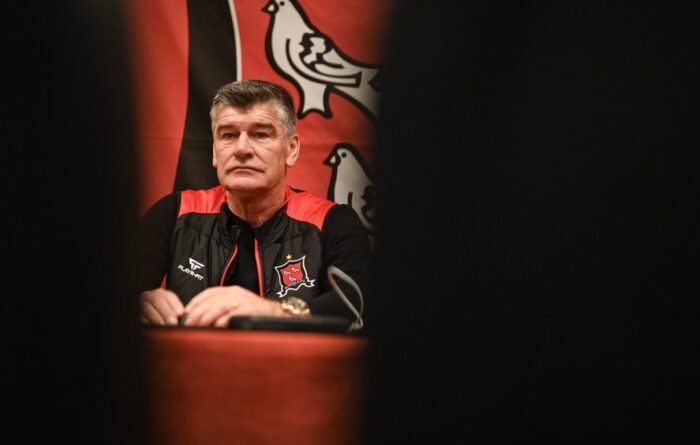
In September, Dundalk FC was saved from liquidation by a “consortium of investors” led by local barrister John Temple. They agreed to buy the club, which just years before had been blazing a trail in Europe, from Brian Ainscoug, a Boston-based businessman who had only taken control last December. The FAI warned that Dundalk, established in 1903, could go out of business until Temple came to the club’s rescue.
At the height of the club’s financial peril, Johnny Ward examined its fall from grace by looking at Dundalk through its various owners. He also compiled a database of its financial performance over the years. It all made for grim reading.
“It is not difficult to see why investors would be skittish. A professional football club that banked millions only a few years ago is now reduced to a supporters’ group releasing a GoFundMe page that, unsurprisingly, is struggling to gain traction,” he wrote.
“You’re dealing with a country that’s trying to decide whether to build roads and houses or sports facilities”
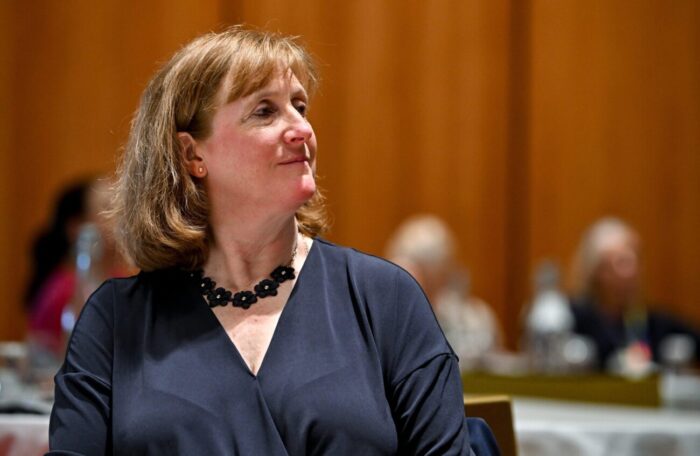
Sport Ireland is responsible for the development of the Abbotstown campus in west Dublin, as well as the development of sport in Ireland. Its remit is large – from supporting elite athletes to governing the various sporting bodies organisations (some of whom are frequently unruly) to promoting active participation across the country. It is even tasked with managing and developing a network of 920 recreational nature trails around the country.
In August, I caught up with chief executive Dr Una May, who talked about increasing participation, developing the national sports campus, and the thorny issue of governance.
The latter point is crucial for May. The way she sees it, governance is crucial if sport is to convince the government to advance higher funding.
Likewise, she said that the relationship between politicians and sport has changed in recent years. The days of politicians working the system to advance funding to their constituencies were largely over, she said.
“I think in recent years we’ve moved away from that. I would say it’s one of the things I’ve been more impressed with, our current minister, he’s been very strategic in how he looks at everything – even things like being brave enough to say that if the gender balance wasn’t met on boards that an NGB wouldn’t get funding. And it’s very refreshing to see because that’s the only way we can really change things.”
Paul Flynn: Success has no time for raw talent and Dublin are paying the price for that impatience

In July, it was becoming clear that the great Dublin Gaelic football team was losing some of its sheen. Paul Flynn was a key player on that era-defining team before his retirement. In his column, Flynn, a GAA columnist with The Currency, talked about the difficulty of succession planning in an environment where winning is everything. Ultimately, he argued that Dublin had not invested enough in its future as it was too impatient for instant success.
He wrote: ”Succession planning is hard. I wouldn’t have survived as a 21-year-old if I’d come into the squad in 2018. What would have happened to me or others with raw talent? It becomes harder to develop players when standards are at a certain level. Persuading those players to stick around because you might need them in the future is even harder. And the group operated at such a high level that there was a pressure that came with that, which a player needed to be ready for.
“There was no time to develop the skills, or thinking under pressure or tackling technique, let alone the next layer which has evolved since my introduction, which is the tactical obsessions. But in my opinion, that is what is needed. A fresh start with a new generation. It may not immediately bring an abundance of success in the short term but for the medium-term health of Dublin GAA, they need to bring on the next generation.”
Meanwhile, the group at the top begin to wonder about life outside of Gaelic football, something Flynn acknowledges himself: “As I approached 30, I began to wonder about all I was missing out on. I had to invest in my career, I wanted to have a family. I wanted to be defined by other things as well. At times it’s intangible. Rather than running out the door to training, you’re labouring a little bit. Rather than being enjoyable, it becomes something else. Careers are getting more serious. Real life is right in your face. Some people decide they want to go travelling and you can feel like you’re on a treadmill of dedication and sacrifice.”
Brett Igoe: Artificial surfaces have brought both opportunities and challenges to sport
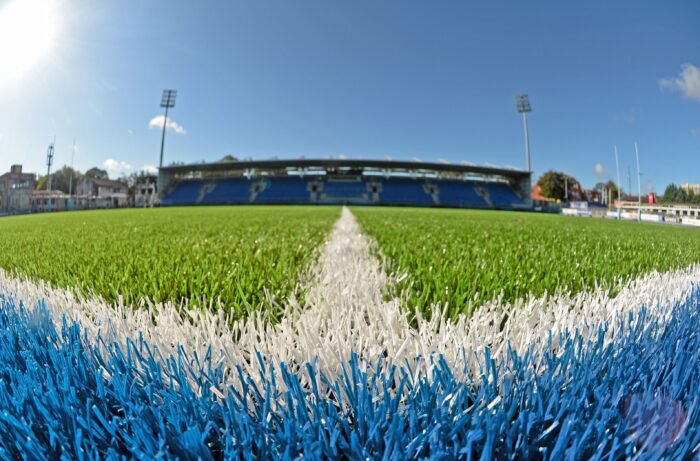
The shift to artificial pitches has revolutionised Irish rugby infrastructure. These synthetic surfaces have proven to be both cost-effective and remarkably practical, offering year-round playability without the traditional headaches of waterlogging or frost. As Brett Igoe outlined, artificial turf has transformed the rugby landscape, particularly in schoolboy rugby, where natural grass pitches have become increasingly rare for school first XV matches. However, as Igoe outlined, the debate over injuries on artificial rugby surfaces has intensified in recent years with professional players increasingly vocal about their concerns.
He wrote: “When examining specific injury patterns, distinct trends emerge for each surface type. Natural grass pitches are associated with higher rates of concussion and chest injuries, while artificial surfaces show an increased prevalence of lower limb problems. The latter appears particularly linked to the unique dynamics between players’ footwear and the synthetic surface, resulting in a higher occurrence of toe, hamstring, and foot injuries. These variations likely stem from the different ways players interact with each surface during tackles and other contact situations.”
The sustainable funding model behind sustainable success
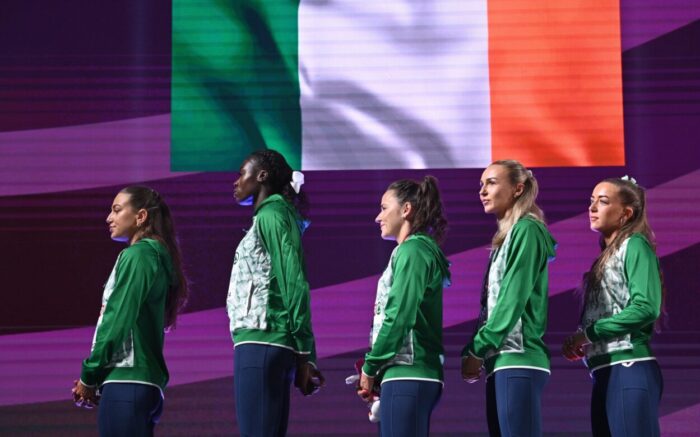
In June, Ireland’s athletes created history in Rome, winning a string of medals at the European Athletics Championships. The week the event ended, I caught up with the chief executive of Athletics Ireland Hamish Adams. Before we spoke, Adams had just left the Department of the Taoiseach, where Simon Harris had welcomed and congratulated members of the team. When the conversation ended, Adams was on his way to another event.
“It has been hectic, but hectic in a good way,” he said.
Adams was understandably overjoyed by Ireland’s stunning success in Rome that week. But he maintained that the funding model for the sport should not be just linked to medals. “You don’t want a situation where the number goes up dramatically if you are doing well and it is cut off when things are not going as well. We want certainty. And we have that,” he told me.
Throughout our conversation, he resisted the temptation to lobby for heightened levels of government financial support, arguing that athletics in Ireland should have sustainable funding, augmented by incremental annual increases.
“That is the beauty of the model,” he said. “We have consistent funding with incremental growth.”
“A bad year on the pitch should not mean armageddon”: Rovers’ new childcare plan
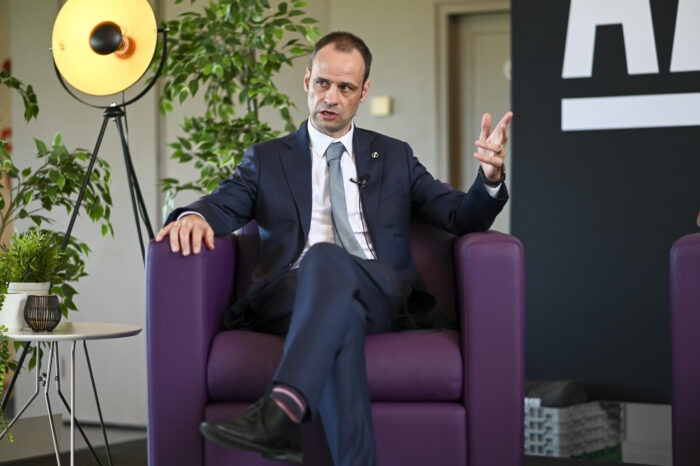
Shamrock Rovers recently secured automatic qualification into the Uefa Conference League round of 16 with a win over Borac Banja Luka. It is a magnificent achievement for the club, which, 20 years ago, was on the cusp of collapse. The club is now backed by Australian businessman Ray Wilson (who now owns 25 per cent) and the financier Dermot Desmond.
As the club was making its way through the European group stages, Alice sat down with its chief executive, who left a 20-year career at Irish Life to enter the world of football full-time. He explained the financial benefit of its extended European run, and why it was looking at a new solution to extract itself from cyclical financial woes. “I think I can generate between €1 million and €1.5 million for education and training,” he said, as it outlined a new plan that will see the club’s academy recognised as a Tusla-regulated childcare service and become eligible for state funding.
It’s a plan that Rovers has been working on over the last three to four months.
“We’ve redesignated our training grounds and all the work we do at underage, we’ve redesignated ourselves a childcare provider,” said Martin. Rovers’ 70 volunteer staff have done childcare and pediatric first-aid training, and the club has registered with Tusla to become part of the National Childcare Scheme.
In the pre-Brexit world of young players travelling to British academies, he said he saw scary numbers of kids “being spat out” coming home without an education and their “lives destroyed”.
“We’re saying now to a parent: ‘No, stay, come into [our] model, you’ll train the same number of hours as you would in England, our coaches have a really good standard, we’re building out our facilities…’,” said Martin, giving his pitch. The players can go abroad later when they’re older. At that point, he said, “their chances of success are infinitely higher”.
“There is now a huge opportunity to use sport as a platform for advocacy”
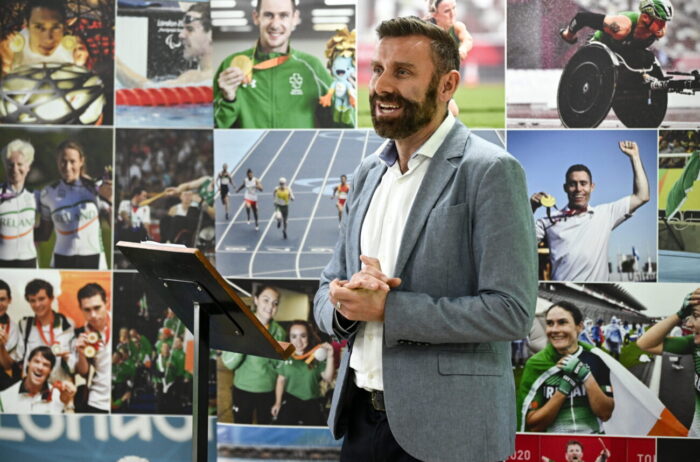
Stephen McNamara is new to his current role as chief executive of Paralympics Ireland, but he is certainly not a novice in the world of sports or communications. A former head of communications with Ryanair, he worked closely with its chief executive Michael O’Leary. After that, he was director of communications with the IRFU, helping build the brand and digital reach of Irish rugby. He was also a government appointee to the Commission on the Future of Media.
We caught up before the Paralympics. As we spoke, it was clear that he was determined to increase both state and commercial funding for the organisation. However, going forward, he is also determined to use sport to advocate for inclusion.
The way McNamara sees it, Paralympics Ireland and its athletes can use their collective voice to champion real-world issues – from wheelchair-accessible toilets in bathrooms to working with employers to increase job opportunities for people with disabilities.
“This will be a big focus over the next five to 10 years,” he said.
Wealth, investments, and life after the game: When Tom Lyons met Gary Neville

Gary Neville was one of the most successful footballers of his generation. But, since he retired from the game, he has built a wide-ranging portfolio of businesses and investments. Tom sat down with him earlier this year to discuss the secrets of success both on the pitch and off it.
From early on in his sporting career, Neville says he was thinking about what came after.
“I was playing for United, but I was never one of those players that thought the end of my dream would never come. I knew that I had this 35 to 40-year life to live after football,” he said.
“A lot of footballers get to 35, and all of a sudden they are retiring, and only then they think about what they’re going to do next. You can never replace the adrenaline and thrill of playing football, particularly if you play as I did with a great football club.”
Neville said he was currently active in between seven and ten businesses. The Overlap, his YouTube channel, is one of them. He said the development company he co-founded, the Relentless Group, was about to complete a 200,000 sq ft project in Manchester in September, while he had also set up a production company to produce the content he was making with some former Sky staff — “We will turnover probably £40 or £50 million this year.”
Neville said he was also an investor in two hotels, and he was still involved in his first business, a design consultancy, which employed 30 or 40 people.
“I try and make each day or half day about one business. I got to the point after football where I was moving from selling hospitality into a production meeting into an interview into real estate. And that was all over the place. So I try to coordinate it so that I’ve got certain things happening on certain days and my mindset for that day is focused around that business,” he said.
Is this water big enough for both of them? The dispute tearing the sea swimming community apart

The Liffey Swim has taken place in the centre of Dublin city for more than 100 years. It is a marquee event for the swimming community, and qualifying for it is an achievement in itself. This year, a scuffle broke out over who should run the competition.
Leinster Open Sea, who have run the swim for the last number of years, accused the governing body for swimming, Swim Ireland, of trying to take control of the event.
But Swim Ireland said it had concerns about governance at Leinster Open Sea and that the swim had always been run under its auspices.
Alice covered the dispute extensively, detailing how tensions between Swim Ireland and Leinster Open Sea had simmered since at least 2022 but reached a new high late on the evening of April 11 this year when various missives started to fly about the community. It is a detailed and well-constructed feature on an intriguing topic.
Turning ordinary into something extraordinary
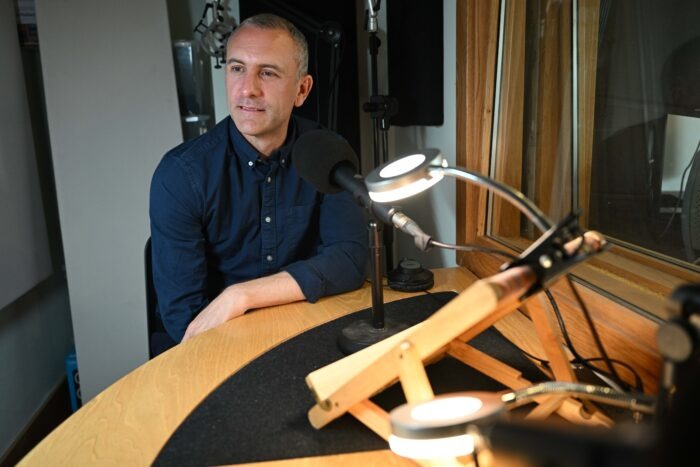
In November, Conor Niland’s book The Racket, On Tour with Tennis’s Golden Generation — and the other 99%, was announced as the William Hill Sports Book of the Year for 2024. I had interviewed Niland when the book came out earlier in the year, but I caught him with the former Irish tennis number one in the aftermath of the award when I looked at the economics of sport and sports publishing.
Bookshops are crammed with sporting memoirs. Most are dull, sanitised portraits of dull, sanitised athletes, the majority of whom are multi-millionaires. Niland’s book is exceptional for its exceptionalism. It is his unvarnished truth of life as a journeyman tennis professional, a player who flirted with the elite but who never truly became one of them.
Niland told me he did not want to write just another sports book. And he knew from the beginning that he did not want to hand over his voice to a ghostwriter. He had heard tales of athletes talking into a dictaphone, and a writer coming back with volumes of prose, and he decided that was not for him.
Niland says The Racket is a counter to Open, Andre Agassi’s compelling autobiography that tells the story of a man operating within the elite. He believes that is why it has resonated with so many people. It is the story of a normal man whose extraordinary talent was enough to make his career extraordinary.
He says that people look at the grand slams, the glitz and the glamour, and they tend to misunderstand the life of a rank-and-file athlete. He wrote the book because he wanted people to know the truth.
“It is a different story, a story that is rarely told,” he says.
And that story is rarely told because, as Niland puts it, “no one ever asks to hear it”.
Wembley humiliation, Heimir Hallgrimsson and a lesson in powerlessness

In November, England beat Ireland by five goals to nil in the Uefa Nations Cup. It was a sobering experience for the team and its newly minted manager Heimir Hallgrimsson.
In the aftermath of the match, Dion Fanning argued that the result was because of a series of bad decisions taken nearly 20 years ago and compounded ever since.
He wrote: “Since 2012, English football has invested close to €3 billion in youth development, a process which ensures that Tuchel, or whoever the England manager is, knows he will have a player for anything he might require. Ireland’s manager has to work differently and his world shrinks every day. Irish football has been in a perpetual crisis since the John Delaney era unravelled even if the problems had been mounting long before that.”
He concluded by saying that the only way to change is to understand the fundamental flaws in the game and work to change them. It is the only way to restore power to the powerless that dominate Irish football.
“Removing rugby from those schools is like trying to take egg out of a baked cake”
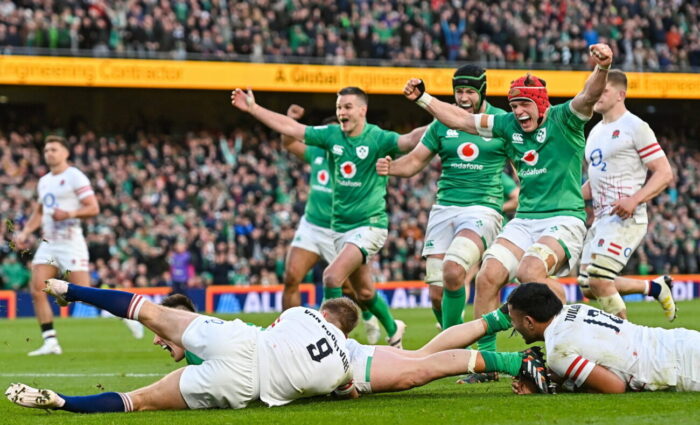
All the major Irish team sports wrestle with their relationship with the country in a way that isn’t unique to Ireland but is certainly peculiar in its relentlessness and refusal to settle. Hurling brings out the self-congratulation; Gaelic football the self-loathing. Football and rugby are often viewed in comparison to Gaelic games, with the historic accusation, implied or explicit, that these games — and more importantly — those who played them — were somehow less Irish.
For Liam O’Callaghan, author of the book Blood and Thunder, rugby has the most interesting story to tell of all the sports. His book makes a compelling case for his point of view, spanning as it does how rugby was seeded in Ireland, the political tensions, its role north and south and the class element which ultimately may be more important than the nationalist position. He sat down with Dion Fanning.
Factions and fatalism: Dion Fanning on the FAI’s search for meaning, a CEO and a manager
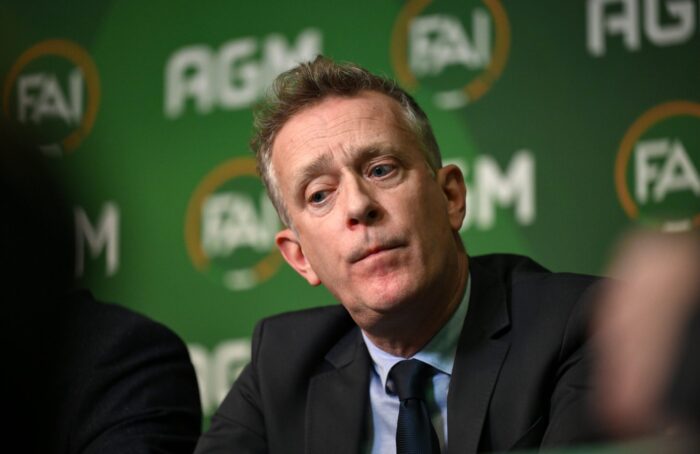
In April, Jonathan Hill stepped down as chief executive of the Football Association of Ireland. His tenure will be remembered for a payments controversy and the failure to secure a national manager. But, as Dion argued that week in an essay on Irish football, the dysfunction that has long shaped – and derailed – the organisation is deep-rooted and culturally embedded.
He wrote: “For many people who know Irish football, there is a sense of despondency now. Whatever chance the FAI had of changing its image and, more importantly, getting the government to back its plan for infrastructural reform now looks unlikely. The FAI’s appearance before the Public Accounts Committee was meant to be an opportunity to make that case, instead it became a journey into the email trail that ended up with Hill getting a payment in lieu of holidays.
“In the end, the FAI was back where it has so often been: on the end of a defeat, which seemed to be both inevitable and ridiculous.”
Rules, AI, and a new breed of player: How rugby is set to be transformed over the next 25 years
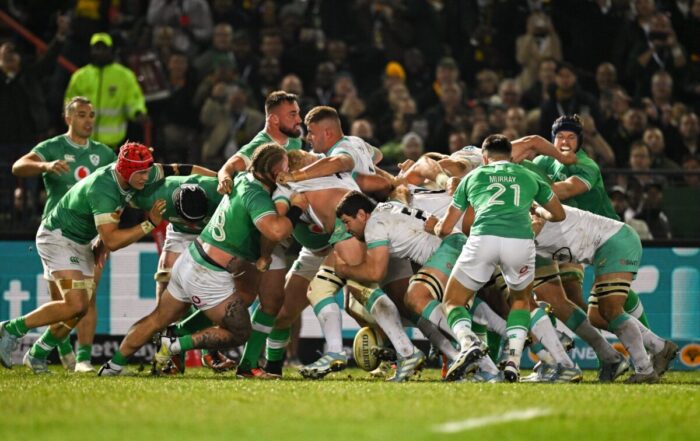
As the rugby season kicked off in August (although in truth, when is the season not on?), Brett Igoe examined the prevailing trends in the sport to see what it will look like in 25 or 30 years.
Using data and metrics, he explained how advanced analytics and AI technology will become the backbone of rugby strategy as each team looks for an edge over their competitors. From player development to split-second decisions on the pitch, data will drive the game like never before.
This will put increased pressure on those who run the game: “Ireland’s first generation of rugby administrators navigated the turbulent waters of professionalism with admirable skill. The new breed of leaders of the game will face a whole new set of challenges, but these challenges are clear: They must be bold, innovative, and unafraid to break new ground. Some factors will always be beyond their control. But in areas where they can make a difference, Ireland’s rugby chiefs must aim for nothing less than world-class excellence and ensure that Irish rugby remains at the forefront of the global game.”
Paul Flynn: In a GAA world of copycats, Jim McGuinness is a true original

Jim McGuiness is one of the most charismatic and intriguing managers in Gaelic games. And this year, he returned to inter-county management with his native Donegal.
Paul wrote a column about his transformational relationship with the game, arguing that Gaelic football existed for more than a hundred years with very few tactical developments up until Jim’s first rodeo, and that’s what makes him different. “This time around there are clear innovations in how he is setting up Donegal. He has taken so much from his time in soccer, a game which is tactically advanced compared to Gaelic football,” Flynn wrote.
“What he tried to do was transcend different sports. Clive Woodward tried going from rugby to soccer but for Jim even getting his badges was a ridiculous achievement. It gives you a huge advantage in Gaelic football. Copycat syndrome is a big thing in the GAA. Some teams have a vision, they go after it and others just copy it. At the club level, it is all copycats.”
The data reveals that League of Ireland clubs are spending big. Is history repeating itself?
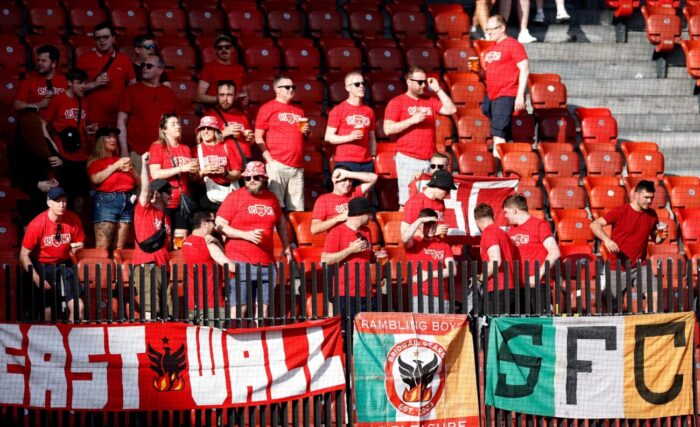
In July, Damien Duff’s Shelbourne lost 3-0 to FC Zurich in a Europa Conference League qualifier, while Stephen Kenny’s struggling Saint Patrick’s Athletic enjoyed a first-leg 3-1 win over little Vaduz of Liechtenstein in Thursday’s games. Billionaires are now a regular thing in the League of Ireland – but, asked Johnny Ward, what does this all mean in a league devoid of TV and prize money? “Is a local willing to invest and lose millions better than an outsider?” he pondered.
To help answer the question, he did a forensic examination of the accounts of the major League of Ireland football clubs. It revealed growing wage bills and mounting losses.
“Tommie had so much influence. He drove everyone along on this project”

Just days after his sad passing, Tommie Gorman’s beloved Sligo Rovers submitted a formal request for funding to redevelop the Showgrounds. The club’s chairman Tommy Higgins talked to Sam Smyth about his childhood friend, developing Irish football, and the future of Sligo Rovers.
When developed, the Sligo showgrounds will have a capacity of 6,200 covered seats in a stadium with a new grass-hybrid pitch to accommodate other sports and activities. There will also be a gymnasium, a club merchandising shop, meeting rooms and a museum dedicated to Sligo Rovers. It will also be a hub for media, a salute to Tommie Gorman’s history as a communicator.
The grand vision to build the finest sports stadium outside of Dublin will come with an equally impressive invoice: €26.1 million. The club has already applied for €18.3 million from the Large Scale Sport Infrastructure Fund. As the country’s leading regional sports centre, Sligo would welcome League of Ireland clubs who choose to play European games outside of Dublin. There will be a sports academy, facilities for youth and women’s teams and other disciplines such as rugby will be invited to the Showgrounds.
As Ireland takes over Cheltenham again, Britain is looking away
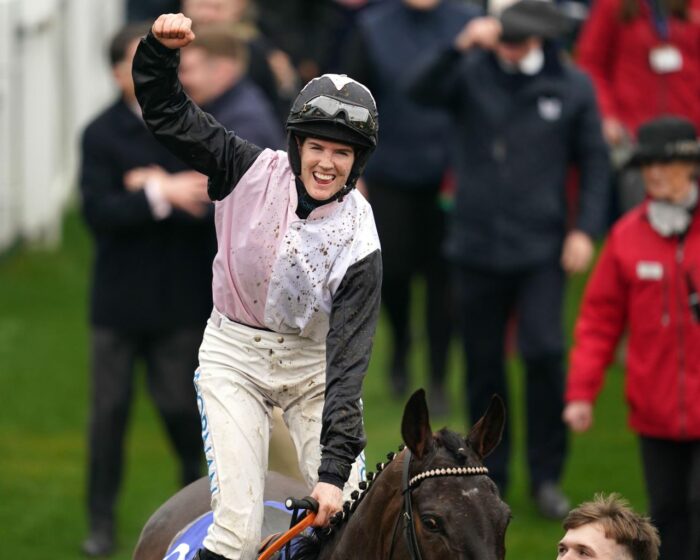
In the 1980s, it was not unheard of for Ireland to have no winner at the then-three-day Cheltenham, racing mirroring the economy: Ireland was impoverished and good horses were sold. Earlier this century, the Irish might have a quarter of the bounty. Now, Ireland dominates the festival.
Before Cheltenham this year, Johnny Ward examined how this happened, and also investigated the decline of the industry in the UK.
“Horseracing, Britain’s second-largest spectator sport, goes back to Roman times. It is in existential crisis and, certain of a hammering by the Irish visitors in the 2024 Cheltenham Festival, the hosts can merely aspire to put up a respectable show,” he wrote.
Crowds are down in Britain, and watching a product in regression. Betting turnover has collapsed on the betting exchanges, with draconian affordability checks forcing punters away or to the black market.
“The high-street bookmakers, now global giants, are moving away from difficult-to-predict sports like racing that require human involvement and towards sports that can look after themselves in terms of turnover. Racing was nearly everything to bookmakers but they could now prosper without it. Still, bold Paddy Power ads shouted at visitors at Dublin Airport this week,” Ward wrote.
Dion Fanning: The FAI got lucky once, but the association will need more than luck in 2024
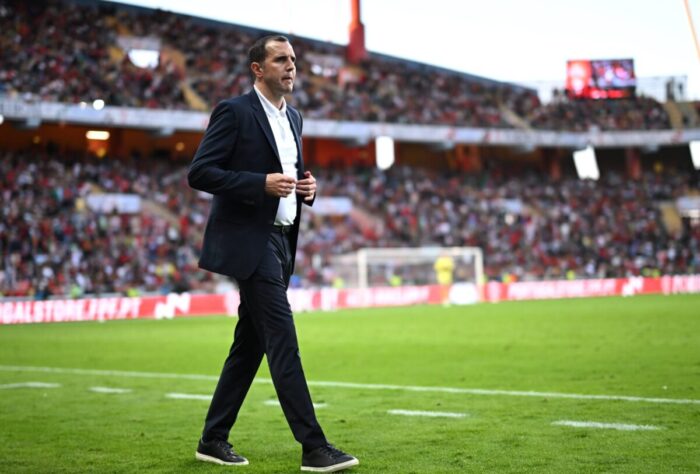
In mid-2024, the FAI was without a permanent manager and it was clear that the organisation was not set to appoint the interim hand John O’Shea into the full role. As the drama played out, Dion Fanning looked at the curious circumstances that led to the appointment of Jack Charlton back in 1986.
As Fanning recalled: “Nobody at the FAI had spoken to Charlton in nearly three weeks and when they tried to call him with the good news, there was no answer. On The Late Late Show that evening, Gay Byrne was handed a piece of paper.
“Did you notice we haven’t had a soccer manager for the Republic of Ireland team in three months?” he asked the audience. “Haven’t lost a match in that time either. Very extraordinary. Well, I’ve just been told that Jack Charlton has been appointed manager of the Republic football team. Jackie Charlton.”
Nearly 40 years on, the FAI was engaged in an even more prolonged search for a manager, with only that precedent as comfort. “Unlike in 1985/86, they have played matches without a permanent manager and they only underlined how bad things are. The FAI could point to the farce of that search as comfort for their own inability to appoint a manager, but the situation, if it was dire then, is even more critical now,” Fanning wrote.
He concluded: “The crisis is deeper now. The current Irish squad are an anonymous lot, who might be able to slip into a boxing match unnoticed. The increase in attendances at League of Ireland clubs is encouraging, but it remains a subculture in Irish sport. The challenge is finding a way to transfer the enthusiasm of the hundreds of thousands who play each week into real development at the top of the game.
“The FAI will hope that a managerial candidate emerges during the European Championship in Germany but whoever it is will only provide a short-term balm. The FAI got lucky in 1986. Now Irish football needs a lot more than luck.”
“There have been numerous chances of a settlement of this and obviously City don’t want anything where they acknowledge any guilt whatsoever”
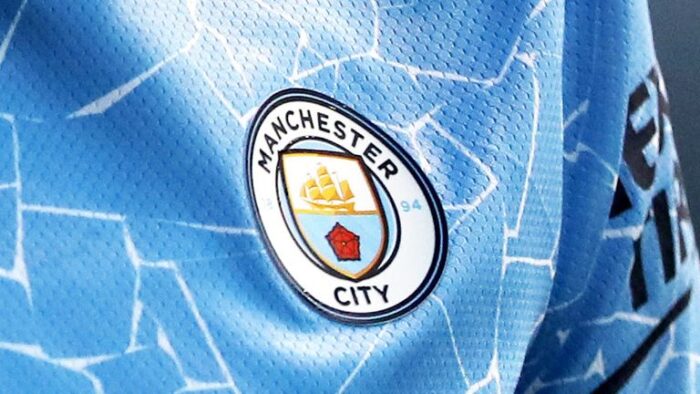
Irish sports journalist Miguel Delaney has been at the forefront of challenging the dominance of state-owned football clubs in England. His book States of Play is a detailed study of how football became detached from its roots and whether there is a path back. He sat down with Dion to talk about how football lost itself in money and politics.
Delaney talks about how the old structures were reframed by impatient revolutionaries. Delaney speaks too of the risks that have come with enraging football supporters who want to be left alone with their dreams and their dreams are sustained by the riches of their owners, no matter where that wealth comes from. Supporters of clubs like Newcastle and Manchester City have become a useful army defending their owners when asked the necessary questions by journalists like Delaney. But the real questions are for those who allowed this to happen.
Paul Flynn: New GAA leader will face many obstacles on his road to reform
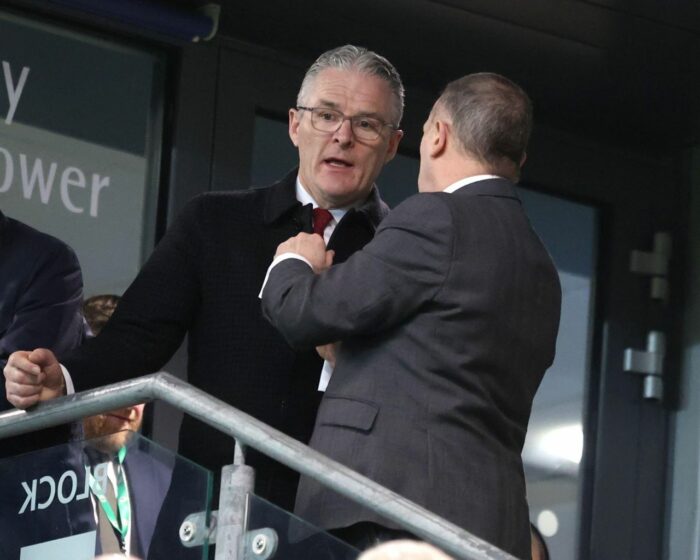
Jarlath Burns took over as president of the GAA this year and, the way Paul Flynn viewed it, the association has a president who is different to those who have gone before.
When he looks at Jarlath Burns, he doesn’t see somebody content to fulfil a ceremonial role. This has been the traditional function of a president of the GAA, but Burns is not a traditional president. Flynn argued that he has a personality that is more suited to being out front.
According to Flynn: “The more he can stress his agenda for change, the more chance he has. His charisma will help but there will be those who use a misstep like this week’s one against him when it comes to the real tussles. The hope is that he can overcome that. The GAA has been at the forefront of so much that is positive. Change is coming to the GAA, and maybe to Ireland. Jarlath Burns’s presidency will be high-profile. Whether he succeeds or whether he fails, it will be noteworthy.”
The talent factory: Why the national U20 side is Ireland’s outstanding rugby team
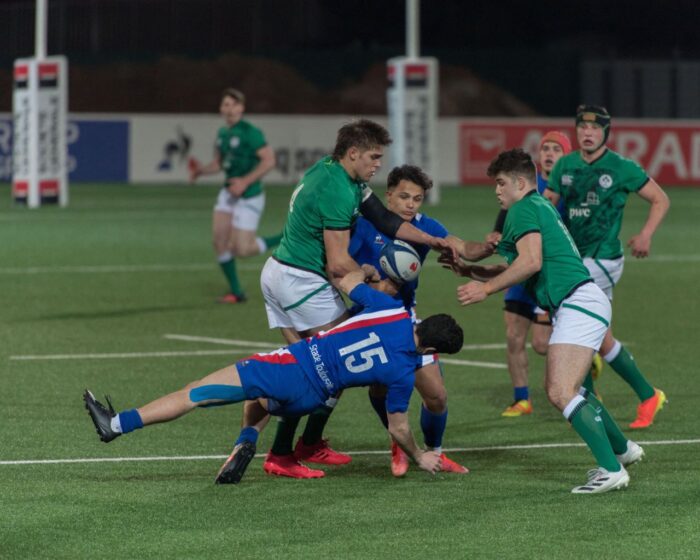
Ireland has some good rugby teams, but the national U20 side is arguably the outstanding one. When Brett Igoe sought to understand why in January, the team had won 22 games out of 24 since 2019.
As Brett Igoe put it: “As the trajectory of Irish rugby continues to rise, ongoing improvements in training infrastructure and a dedication to research and development promise to push the sport to new levels. Ireland’s model for nurturing talent has set a benchmark, sparking envy among rival unions, which are now motivated to bridge the talent gap.
“The U20 Six Nations serves as a pivotal platform for these unions to measure and refine their developmental strategies against Ireland’s. While Ireland’s system is not without its flaws and there is certainly room for improvement, it currently surpasses those of its competitors. The true test lies not in sustaining this lead but in striving for constant innovation and growth within the sport. This approach will not only maintain Ireland’s competitive edge but also expand the horizons of its emerging talent, ensuring a dynamic and flourishing future for Irish rugby.”
